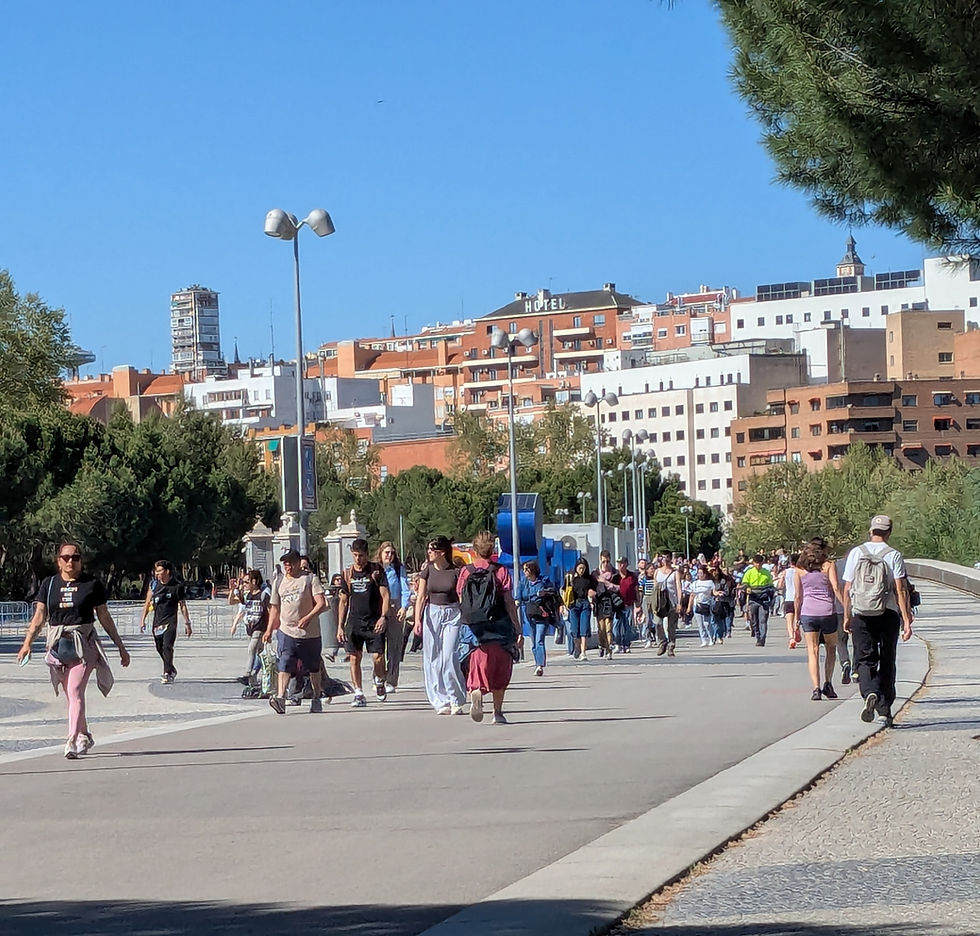The magic of interrupting modern life
- Jessica

- Apr 28, 2025
- 2 min read
Updated: May 23, 2025
Yesterday after midday, the lights went out. The mobile networks went down. The metro stopped, as did the trains - and the lifts in buildings all across the country.
Given the tension in the world at the moment, the first bit of info I got when I headed out felt ominous: there must have been a cyber attack, because power was out all over Spain and Portugal. I hoped family visiting me hadn’t been trapped in a lift or metro. These days, it's weird to not be able to check. For some reason I briefly had coverage. I managed to send a text to my brother but received no answer.
It was cheerily sunny, but there was no power, no internet and few working card machines. We were thrown back to analogue times, and then some: after all, who has a radio with working batteries to get the news these days? A paper map for getting around? Or even cash?
Soon, almost all bars, restaurants and shops were shut. Only supermarket Mercadona seemed to have solved the riddle – they had working card machines but not that much light in the shop. There was intermittent Wifi in the shopping centre.
As the hours went by, the silver lining became obvious: people gathered on the street and talked. Madrid was on the move: there was of course chaos in traffic and on buses, but those who could, walked. They asked others for directions. They gathered outside in groups.
Not knowing what’s going on with loved ones is worrying, of course (mine were fine). Many struggled to get home without working transport. But life is more relaxing without constant connectivity. It lets us connect more with those around us. It makes us look up from Google maps and look around. All of this is possible to achieve on any normal day. As I ponder where to pick up batteries for that radio, I’m thinking that if those realisations dawned on more people yesterday, that’s a benefit gained from a day of weird mayhem.





Comments